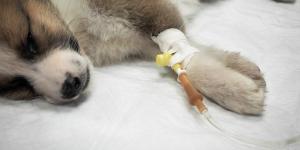Canine Parvovirus

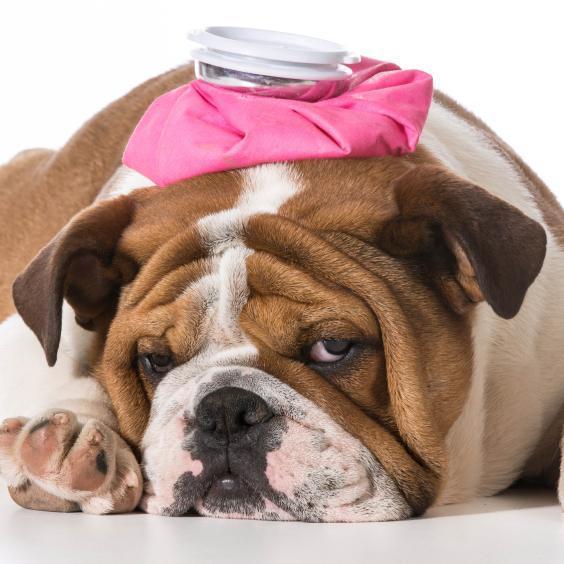

See files for Dogs
The canine parvovirus, or parvo, is a viral disease that mostly affects puppies, although it can affect any dog even if vaccinated. Many puppies have been victims of this highly contagious and lethal disease.
On many occasions and due to lack of information owners have misread the symptoms of parvo, leading to a misdiagnosis. For that reason, if you are the happy owner of a dog we suggest you keep reading this AnimalWised article and get in-depth information on canine parvovirus and its symptoms, transmission and treatment.
What is canine parvovirus
Canine parvovirus was identified in 1978. Since then the initial genetic strain has varied and this has lead to varied viral forms that make its detection difficult.
It is a disease that mainly affects the intestines of all the Canidae family members, like dogs, wolves, coyotes, etc. It is resistant to both physical and chemical factors and has a very high survival rate in the environment. It has a predilection to settle in rapidly reproducing cells such as intestinal cells, immune system tissues or fetal tissues. In severe cases it can attack the heart muscle, which leads to sudden death.

Symptoms of parvovirus in dogs
As mentioned above, the parvovirus has a knack for genetic mutation but this dreaded virus can still be detected through its symptoms, one of which will always develop.
- Decreased appetite
- Very severe vomiting will usually take place
- The dog will appear numbed, inactive or very tired
- They may suffer abundant and bloody diarrhea
- Fever
- Quick dehydration
- Weakness
- They can go into shock due to fluid loss
- Their heart could be affected.
In severe cases, the parvovirus can cause a decrease in white blood cells. On the other hand, if the affected dog is a puppy less than three months old it may suffer heart inflammation. In these cases there is no diarrhea and the puppy may die within minutes or days. If it manages to survive the heart damage can be so severe that it will likely put an end to its life. Therefore if you are faced with one or more of these symptoms of canine parvovirus we recommend that you go as soon as possible to your vet so he or she can examine your pet.
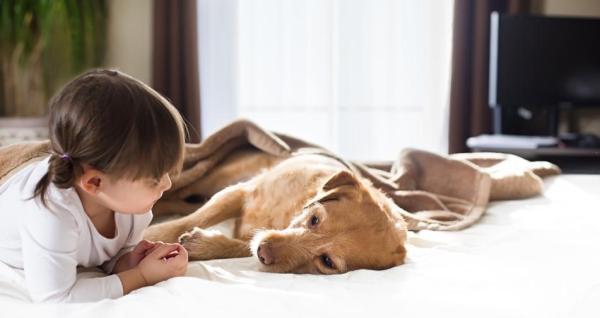
Transmission of canine parvovirus
It is very common that it attacks puppies under 6 months old or adults who are not vaccinated or dewormed. Therefore we must always stress the importance of regular visits to the vet.
Although there are breeds that are more vulnerable to this type of virus, such as the German Shepherd, Doberman, Pit Bull or Rottweiler, there are also factors that may predispose your pet such as stress, intestinal parasites or an accumulation of dogs in one place.
Parvo virus evolves at breakneck speed and can stay in one place for months. It is transmitted orally through food, breast milk, feces or infected objects such as our shoes. Some insects or rodents can be hosts of the virus.
On the other hand, it should be noted that the parvovirus does not spread to humans.
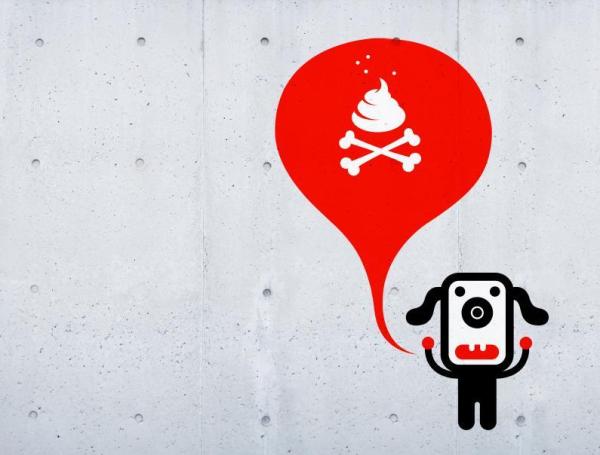
Prevention of parvovirus in dogs
If you suspect that near your area there are dogs infected with parvovirus and you fear for your dog's safety we recommend you bring out your arsenal of cleaning products to prevent it, these are the tips we can give you:
- Strictly follow the vaccination schedule recommended by your vet.
- Deworm your pet with the stipulated regularity.
- Take care of the dog's physical hygiene.
- Sanitize the entire house environment regularly with bleach.
- Keep food in a place free of rodents.
- Clean their utensils such as the food bowl, toys...
- Do not let your puppy out on the street or be in contact with other dogs if they are not vaccinated.
- Avoid contact with feces.
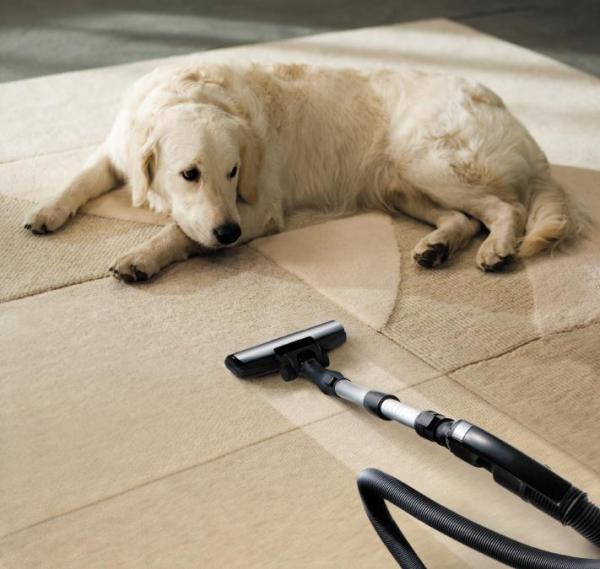
Treatment of the canine parvovirus
If your dog has definitely been infected with parvo, immediately take it to the vet to analyse the situation and have the disease diagnosed. The treatment for canine parvovirus begins as soon as possible and its main objectives will be to fight symptoms such as dehydration, electrolyte imbalance, controlling vomiting and diarrhoea, etc.
No treatment is 100% effective against the parvovirus, veterinarians follow a series of treatments that in some cases give good results. These are some of the steps that they follow:
- Re-hydration of the dog through the administration of saline solution. The use of Lactates Ringer's solution is common in these cases. It is combined with colloids and is often applied intravenously.
- For heart or kidney problems saline solution doses should be administered carefully, because they are not always adequately tolerated.
- Blood Transfusions to alleviate blood loss through diarrhea.
- Once the dog is stabilized the next step is fluid maintenance therapy, composed basically of sugars with potassium chloride.
- In some cases recovery may also require the administration of potassium.
- Use of antibiotics and antiemetics.
- Use of Tamiflu: the use of this drug is increasing due to its success in some cases. This must always be accompanied with the previous treatments, as indicated by the veterinarian.
In case you do not want your dog to remain at the clinic, your vet can explain the appropriate doses and you can do it yourself through the application of saline solution bags. Remember that your dog can not be in contact with other dogs as it could infect them. You should go to your vet to monitor the progress and development of the disease in your pet.
To properly remove any trace of the virus in the environment you should use strong cleaning products. You can use those with or ammonia to completely disinfect the area, but do not mix these two chemicals together. We recommend that you discard all utensils, including the dog's bed, feeding bowls and toys, and you replace them with new ones. Sanitises the entire environment, including house and terrace.
If you wish to adopt a new canine friend, wait at least 6 months to do this. The parvo virus is very durable and can last a long time in the environment, even after thoroughly sanitizing the area. During this waiting time carry out research in pet stores or veterinary clinic on what products eliminate the virus. Take heed of an expert before you want to bring another dog into your life, its health is at stake.
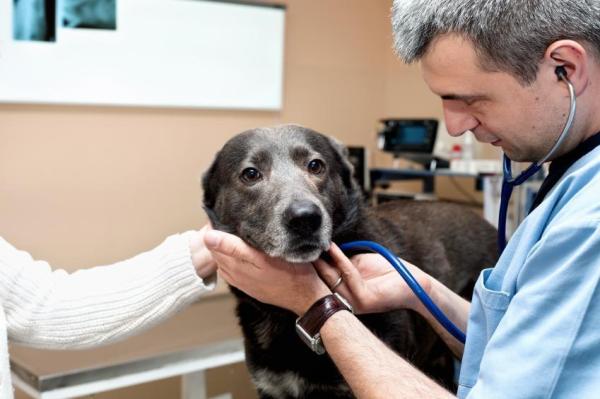
Diet for a dog infected with parvovirus
If your dog has been diagnosed with the parvovirus it is important to know what kind of food is the most appropriate for a faster and easier recovery, here are some tips:
- Hydration: a fundamental part of the parvovirus treatment is the administration of saline solution to counteract the effects of the diarrhoea and vomiting. Drinking a lot of water helps in the hydration process. Sports drinks are also a good choice, as they provide lost minerals. Change your dog's water at least twice a day, offering it new and clean water.
- Avoid food: at least in the first 24 - 48 hours as that is when the virus is particularly virulent. At most you can give it homemade chicken broth that is unsalted and without condiments.
- A soft food diet: from 48 hours onwards it is considered that the dog has passed the worst of the disease so you can then start giving it a soft food diet. We recommend including rice water, homemade chicken broth, white rice and canned soft foods. Remember that you should not add salt or spices. Check out our soft diet for dogs with diarrhea.
Once the dog has recovered its health and your vet states it is possible you can start administer it with its usual dry feed again.

This article is purely informative. AnimalWised does not have the authority to prescribe any veterinary treatment or create a diagnosis. We invite you to take your pet to the veterinarian if they are suffering from any condition or pain.
If you want to read similar articles to Canine Parvovirus, we recommend you visit our Viral diseases category.



